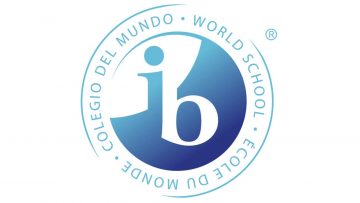
Next year, sophomores will be starting their first year of IB and juniors are completing their final year of IB. Here are a few words of advice from the current AISG seniors and the graduating class of 2020!
Gabriel K. shares his biggest advice when entering IB. “Approach your teacher as often as possible, because teachers aren’t going to punish you for asking too many questions.” Some of his toughest moments were IB year 1 2nd semester and IB year 2 1st semester because of the IAs, TOK essay and presentation, EE, summative assessments, and college applications. He says that “when it all seems too hard and you feel like giving up, don’t lose hope because the two years of IB will be the most important in determining your future.”
Cindy W.’s advice for upcoming IB students is to keep yourself updated and on track with the workload and upcoming deadlines. Like Gabriel, Cindy suggests to stay active and have consistent communication with your teachers and supervisors because it will help you in the future.
Sam J. says that avoiding procrastination as well as making sure to hand in any assignments on time is “the key to success.” As high school deadlines tend to be more lenient, it’s very easy to fall down a “slippery slope” where due dates become just a number and do not generate the same pressure as before.
One thing that Cindy learned from the past two years of IB is perseverance and confidence. Finding the right balance between academics and extracurriculars can be challenging, but persistence and working hard until things are done are essential skills. Gabriel says that although some content in IB may seem unnecessary, “it helps you learn to manage your time, write proper lengthy essays, and learn to be more comfortable when talking to adults.” He also shares that IB is good because “if you are able to finish with a score you wanted it means that you have developed all those aforementioned skills, which will help you through university and your career path.”
When Gabriel was a sophomore, he would often hear upperclassmen cry and complain that IB was so hard. On the other hand, he says that it’s all about being able to manage your emotions and not procrastinating. “As harsh as this might sound, this is the reality; tough ones survive with grit and conscientiousness. Remember that most classmates are on the same boat as you and are receiving a considerable amount of stress. Everyone has the ability to manage time wisely, if you’re complaining about a grade when you haven’t given your best, you’re the only one to blame.” Cindy had heard from upperclassmen that completing EEs during the summer is important because there is a lack of time to finish it during the senior year.
There are also many things that these seniors did not expect from the IB course. Sam didn’t expect that his final two years of high school to go as fast as they did. Cindy was not expecting the intense pressure she would feel when entering IB. She didn’t expect people to study so hard. She says that she’d often not rest well thinking about the people that could be studying at the moment. Gabriel wasn’t expecting to form such a strong bond with his classmates but bonded with them while preparing for exams. He states “when there’s a common enemy (IB), any two can become great friends!”
Regarding study tips for IB, Gabriel’s biggest study tip for math and science is to put effort into solving as many questions as possible (e.g. Oxford textbook, Cambridge textbook, Pearson textbook, past papers, etc.). He says study time ratio between math/science to language subjects should be a minimum of 3:1. For social sciences where it’s mostly focused on memorization and understanding the concepts, students should spend as much time needed to “immediately spit out what you have memorized from top of your head.”